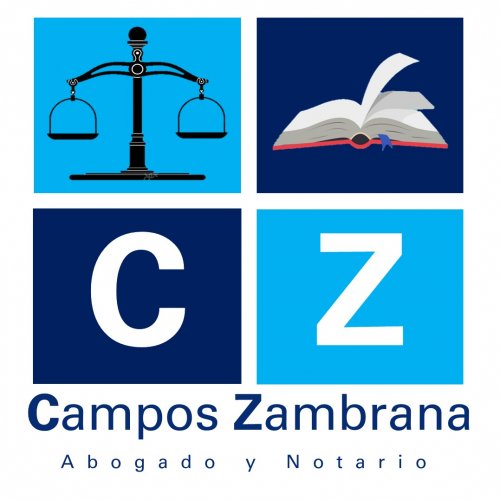Best Labor Law Lawyers in Nicaragua
Share your needs with us, get contacted by law firms.
Free. Takes 2 min.
Or refine your search by selecting a city:
List of the best lawyers in Nicaragua
About Labor Law in Nicaragua
Labor Law in Nicaragua is a set of legal standards designed to regulate the rights and duties of workers and employers within the country. These laws aim to ensure fair and equitable working conditions, protect workers' rights, and help maintain a balanced relationship between employees and employers. Labor Law covers various aspects, including employment contracts, working hours, wages, occupational safety, and the resolution of labor disputes.
Why You May Need a Lawyer
There are several situations where you might require legal assistance in the realm of Labor Law in Nicaragua. These include disputes relating to wrongful termination, unfair labor practices, discrimination, non-compliance with contract terms, and wage issues. Additionally, if you're an employer, you might need legal support to ensure compliance with labor laws, draft employment contracts, handle collective bargaining agreements, or address workplace safety regulations.
Local Laws Overview
Key aspects of local laws relevant to Labor Law in Nicaragua include the Labor Code, which outlines the fundamental rights and obligations of both workers and employers. Important areas covered by the Labor Code include:
- Employment Contracts: These must be written and specify terms such as job role, salary, and duration.
- Working Hours: Standard working hours are set, with any deviation requiring fair compensation.
- Minimum Wage: The government sets minimum wage levels, which employers must adhere to.
- Holidays and Leave: Regulations for paid leave, including annual leave, sick leave, and maternity leave.
- Safety Standards: Employers must abide by occupational health and safety regulations to ensure a safe working environment.
- Dispute Resolution: There are established processes for resolving labor disputes, including mediation and adjudication.
Frequently Asked Questions
What is the standard workweek in Nicaragua?
The standard workweek in Nicaragua is typically 48 hours, divided into six working days.
How is overtime pay calculated?
Overtime pay must be at least 150% of the regular hourly wage and is applicable for any hours worked beyond the standard workweek.
Are part-time workers entitled to benefits?
Part-time workers are generally entitled to the same benefits as full-time workers, proportional to the hours they work.
Can an employer terminate an employee without cause?
Employers can terminate employees but must provide sufficient notice or compensation, and cannot terminate employees without a justified cause.
How are workplace disputes resolved?
Workplace disputes are often resolved through mediation or arbitration, and the Labor Ministry can be involved to facilitate resolution.
What are employees' rights to collective bargaining?
Employees have the right to form unions and engage in collective bargaining to negotiate work conditions and terms with their employer.
What protections exist against workplace discrimination?
Nicaraguan law prohibits discrimination based on gender, age, religion, ethnicity, or political affiliation in the workplace.
Is there a probationary period for new employees?
Yes, the probationary period can last up to three months, during which the employment relationship can be terminated with fewer formalities.
What steps can employees take if their rights are violated?
Employees can file complaints with the Labor Ministry or seek legal counsel to address any violations of their labor rights.
How often is the minimum wage adjusted?
The minimum wage in Nicaragua is reviewed and potentially adjusted annually by the government.
Additional Resources
For those seeking further assistance in Labor Law, the following resources can be helpful:
- The Ministry of Labor (Ministerio del Trabajo) in Nicaragua provides resources and oversight for labor rights and disputes.
- The Nicaraguan Association of Human Resources (ANHR) offers guidance for best practices in workforce management.
- Legal aid services and non-governmental organizations (NGOs) specializing in labor rights can provide consultations and support.
Next Steps
If you need legal assistance in Labor Law in Nicaragua, consider taking the following steps:
- Collect all relevant documentation related to your employment situation, including contracts, pay stubs, and correspondence.
- Contact a legal professional who specializes in Labor Law to discuss your case and explore your options.
- Reach out to the Ministry of Labor for guidance or to file a complaint if your rights have been violated.
- Consider mediation or arbitration as a potential resolution strategy if advised by legal counsel.
Being informed and proactive in seeking legal support can help ensure the protection of your labor rights and interests in Nicaragua.
Lawzana helps you find the best lawyers and law firms in Nicaragua through a curated and pre-screened list of qualified legal professionals. Our platform offers rankings and detailed profiles of attorneys and law firms, allowing you to compare based on practice areas, including Labor Law, experience, and client feedback.
Each profile includes a description of the firm's areas of practice, client reviews, team members and partners, year of establishment, spoken languages, office locations, contact information, social media presence, and any published articles or resources. Most firms on our platform speak English and are experienced in both local and international legal matters.
Get a quote from top-rated law firms in Nicaragua — quickly, securely, and without unnecessary hassle.
Disclaimer:
The information provided on this page is for general informational purposes only and does not constitute legal advice. While we strive to ensure the accuracy and relevance of the content, legal information may change over time, and interpretations of the law can vary. You should always consult with a qualified legal professional for advice specific to your situation.
We disclaim all liability for actions taken or not taken based on the content of this page. If you believe any information is incorrect or outdated, please contact us, and we will review and update it where appropriate.
Browse labor law law firms by city in Nicaragua
Refine your search by selecting a city.










